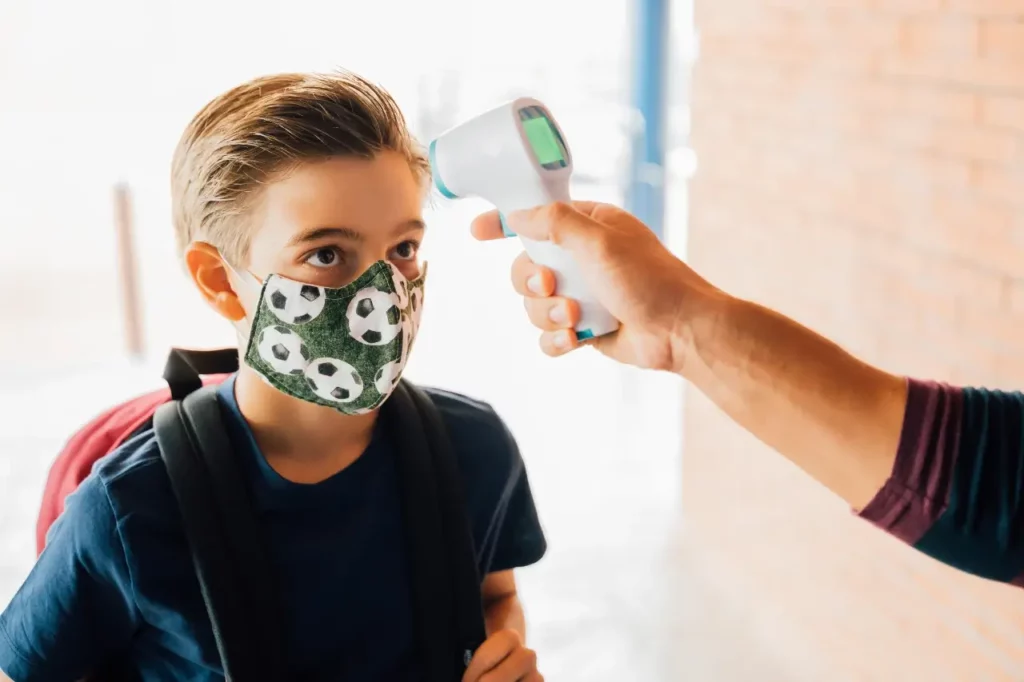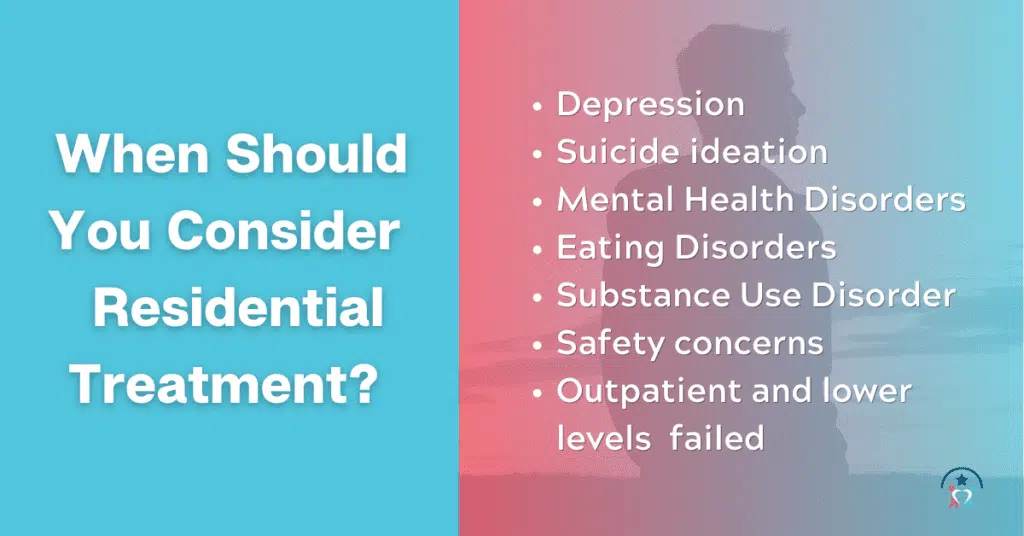Back to School after a Pandemic - Is Your Teen Struggling?
For the bulk of the country, the COVID-19 pandemic has inflicted some level of frustration, worry, or even trauma on our lives. However, for the generation of teens who are also living through this pandemic, the detrimental effects have been even more profound. For teens, life has been altered by illness and loss, social connections have been disrupted with canceled school and social distancing requirements, and usual thought processes and worries have changed.
While most children are returning to school in spite of the still-pressing pandemic, the experiences since early 2020 have changed outlooks, perceptions of life, and even how in-person school is carried out. With the rates of teen depression and suicide on the rise amid COVID-19,
A Look at the Alarming Mental Health Effects of COVID-19 On Teens
The pandemic doesn’t just affect the outside world; the effects of COVID-19 are striking right in the homes of teens. The outbreak of the illness has led to 238 million infections and nearly five million deaths. When teens experience the illness right at the core of their lives—within their own families—the outcome can be severe.
Parents with long-lasting COVID-19 symptoms often have to rely on teens to help with household responsibilities, including watching out for younger siblings. Lost incomes lead to financial hardships and lost monetary privileges for teens. In the most severe cases, loss of life changes everything about the family and household dynamic. And, the teens involved are dealing with all of this in the face of the growing stress and worry they are already under.
The resulting stress of COVID-19 at home combined with the outlying life changes with school and social interactions is putting more teens at risk. Research released by the United Health Foundation shows that teen suicide among those between 15 and 19 years old experienced a sharp increase in 2020. Adolescents seen in the ER for suspected suicide attempts have also experienced a drastic uptick of 26 percent more cases, especially among teen girls. Mental health-related hospital visits among all genders are also on the rise. During the pandemic, one school district in Los Vegas actually lost 19 adolescents to suicide

The resulting stress of COVID-19 at home combined with the outlying life changes with school and social interactions is putting more teens at risk.
Why COVID-19 Poses Challenges for Teens Returning to School
While many schools have managed to adapt their operational guidelines to allow reopening so kids can return to school, the transition back to school is proving to bring about even more challenges. The full year of stress, questionable remote learning practices, and distance from social circles seems to be making it hard on teens that are trying to go back to school. The toll on these teens is obvious to a lot of parents.
The mother of one teen who died by suicide in 2020 stated in a CNN interview that her son was excessively behind and stressed out just a few months into the new remote school year. Remote learning obviously had a detrimental effect on many teens during the pandemic, but even heading back for in-person classes has been tough.
While the bulk of schools are at least partially open to in-person classes for the 2021 school year, the children returning to school are facing new sets of challenges, such as:
- Loss of connection to friends, teachers, and school professionals after so much time at home
- Ailing grades or academic statuses due to challenges with remote learning or missed school days
- Dealing with changed routines, such as distancing during lunch or canceled extracurricular activities
- Still coming to terms with stresses at home due to the pandemic affecting finances, parents, or loved ones
- A lack of school-available mental health services due to staffing shortages
Signs of Struggle to Watch for As Kids Go Back to School
As teens transition back to school, parents and caregivers must take note of how the child responds to the transition and stress of the new way of life. Teens who have experienced significant problems at home due to the pandemic may be most at risk of mental health trouble when going back to school. Some signs a child is struggling with going back to school include:
- Poor academics: Missing assignments, bad grades, teacher complaints
- Lack of social interaction: Not interacting with friends during or after school hours
- Not wanting to go to school: Feigning illness to stay home, cutting class, leaving school early
- Anxiety about leaving home: Clinginess, fear, separation anxiety
- Sleep disruptions: Nightmares, sleeping more or less than usual, sleeping in class
- Persistent feelings of sadness, despair, or hopelessness
- Lack of interest in making future plans
Some signs of mental health disorders should also be monitored, such as poor appetite or overeating, problems paying attention, or even expressing obsessive thoughts.
How to Support the Mental Health of At-Risk Youth
If, as a parent or caregiver, you suspect your child is more at risk than most, it is critical to offer support when the teen goes back to school. A few ideas:
- Keep lines of communication open by asking questions and discussing challenges
- Ensure access to mental health services is retained through school or otherwise
- Monitor the teen for personality, sleep, and academic changes, such as slipping grades, agitation, or reckless behavior
Some at-risk youth may be more vulnerable to challenges returning to school than others. For example, income insecurity due to the loss of a parent or a parent’s illness may mean the teen is more at risk of having problems returning to school. LGBTQ youth and children of color may also be at higher risk of mental health issues due to the pandemic, and any child with a previously diagnosed mental health disorder should be carefully monitored.
What to Do If You Suspect Your Teen Needs Treatment
If you suspect your teen is especially stressed by going back to school, is experiencing mental health challenges like depression or anxiety, or is contemplating suicide, it’s critical to seek treatment as soon as possible. Talk to your teen about what they are feeling and seek advice from mental health professionals about what types of programs could be most effective. If you need advice about finding the right program for your teen, reach out to us at At Risk Youth for help.

Parent Success Story
Her daughter was suffering from anxiety, depression and suicidal ideation. Hear what she has to say about residential treatment. If your child needs treatment contact us to discuss your needs and the best program for your at risk youth.












